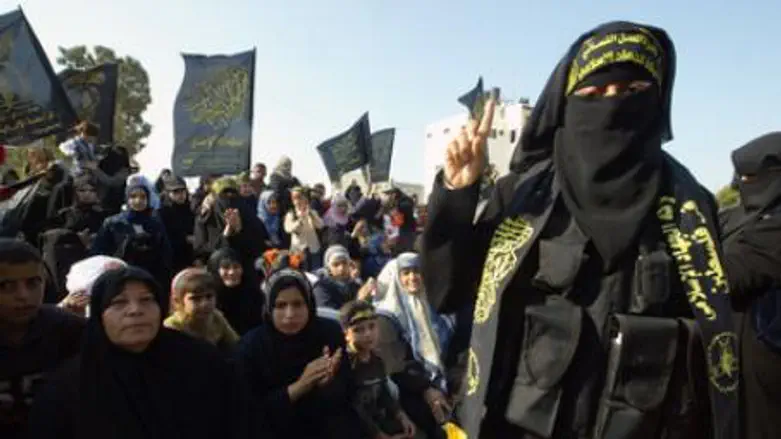
The attorney for Islamic Jihad leader Khader Adnan said Monday that he will appeal his client's administrative detention order to Israel's Supreme Court.
Attorney Jawad Bulus said he would file an urgent request to the Jewish state's highest court in light of a rapid decline in the health of Adnan, 34.
Adnan has been on a hunger strike for 61 days to protest his incarceration by Israeli security officials, which he began one day after his arrest on 17 December 2011.
Bulus said that Adnan was on Tuesday still refusing to eat and fighting "for the dignity and pride of Palestinian prisoners held without justification"
However, observers say the High Court may not consider Adnan's hunger strike material to his detention as he is refusing food of his own volition, and note Adnan's hunger strike is only unique in duration. Previous hunger strikes have not resulted in prisoner's being released.
The World Medical Association maintains hunger-striking prisoners who have made a rational decision to refuse sustenance should not be force fed.
In 1975 the organization resolved, "Where a prisoner refuses nourishment and is considered by the physician as capable of forming an unimpaired and rational judgment concerning the consequences of such a voluntary refusal of nourishment, he or she shall not be fed artificially."
"The decision as to the capacity of the prisoner to form such a judgment should be confirmed by at least one other independent physician. The consequences of the refusal of nourishment shall be explained by the physician to the prisoner," the WMA maintains.
Israeli officials say they will consider forcibly terminating Adnan's hunger-strike should he begin to suffer serious health effects, but say that hasn't happened yet.
On Monday, a riot erupted outside the Ofer military base after an IDF tribunal rejected Adnan's appeal of his detention by security officials. In the riot 23 protesters and 1 border police officer were injured.
Fatah and Hamas officials have warned that Adnan's death in custody would spark mass protests throughout PA enclaves in Judea and Samaria, and Gaza.
Under Israel's administrative detention laws security officials may seek a court order to detain an individual without charge if they are suspected of being a threat to national security.
Such orders can be appealed to a higher court, and must be reviewed by the court every six months. Israel's Supreme Court is the final court of appeal.
Israeli officials have a strict policy of not discussing intelligence matters in public and Adnan's hearings have been held in closed court.
However, Adnan is a senior member of the Islamic Jihad terror organization in northern Samaria. Islamic Jihad seeks the destruction of Israel and actively targets Jewish civilians.
In late January, the GSS and Israel Police foiled a shooting attack planned by an Israeli Arab in collaboration with an Islamic Jihad terror cell from Tulkarem in northern Samaria.
Last August, Islamic Jihad terrorists from Gaza were involved in the deadly cross-border ambush of an Israeli civilian bus that left 8 Israelis – 7 of them civilians – dead.
Islamic Jihad leaders in Gaza – whose terror cells are heavily involved in rocket attacks on Israel's southern communities – have been targeted with airstrikes rather than arrest and detention.